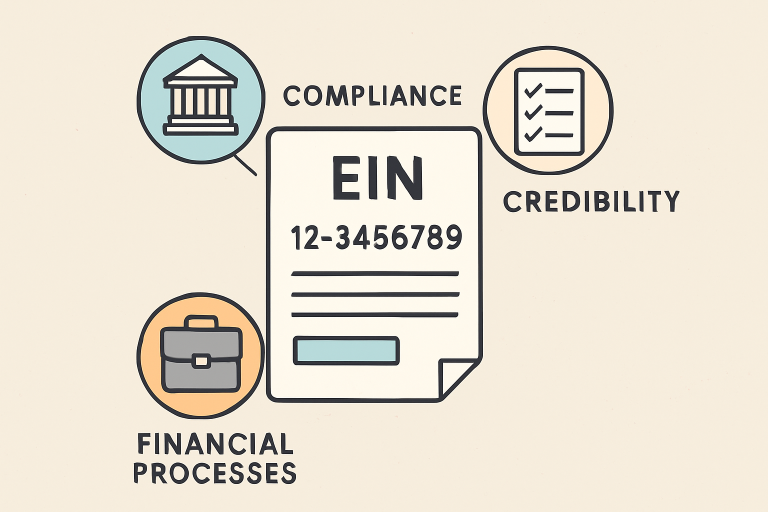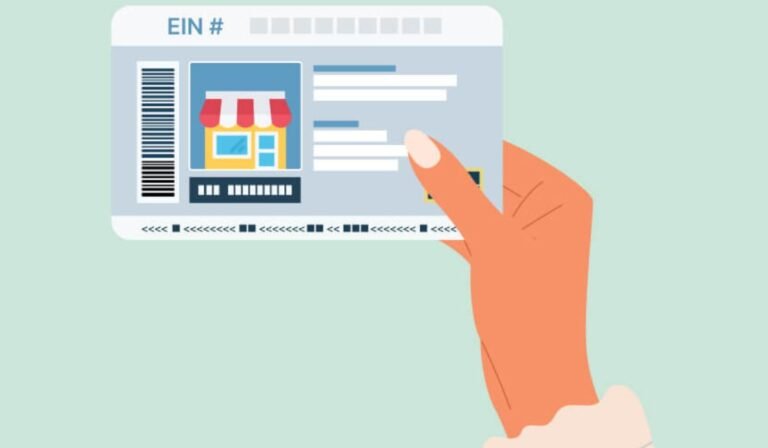A Federal Tax ID Number, also known as an Employer Identification Number (EIN), is a vital tool for streamlining business operations, separating personal and business finances, and facilitating compliance with government agencies and financial institutions. It ensures business efficiency and success.
Employer Identification Numbers (EINs) are crucial for modern business management in the US, streamlining processes, supporting regulatory compliance, and facilitating growth opportunities. Early EIN acquisition can help organizations avoid hurdles and improve financial and operational workflows.
For detailed, step-by-step guidance on obtaining an EIN and understanding its role in your business, visit Tax ID Bureau for comprehensive resources and expert advice on federal tax ID numbers. Introducing an EIN into your business ensures you operate within legal frameworks, bolstering trust among clients and financial institutions. Those seeking lasting operational stability and prospects for expansion benefit significantly from prioritizing this step.
What Is an EIN?
An EIN is a nine-digit number assigned by the Internal Revenue Service to identify businesses for tax purposes. Analogous to a Social Security Number for individuals, the EIN is essential for corporations, partnerships, limited liability companies (LLCs), organizations with employees, and even certain sole proprietorships.
This identifier is required before a business hires staff or files corporate tax returns, making it a basic requirement for operational readiness in the United States.
Legal Requirements and Compliance
Businesses must comply with IRS rules when employing workers, forming partnerships or corporations, or dealing with certain trusts and estates. Not having an EIN when required can result in penalties, delayed filings, and lost business opportunities.
Regulatory agencies, financial institutions, and partners depend on this identifier for due diligence and verification. Penalties for noncompliance can include fines, loss of employee tax benefits, and complications with business banking and payroll systems.
Facilitating Financial Transactions
A business bank account is crucial for a company’s financial management, and banks often require an EIN to legitimize it. This ensures clear separation of business and personal finances, simplifies accounting and tax reporting, and is often required for business credit cards or loans. It also provides professional credibility, asset protection, and better access to financial products.

Hiring Employees and Managing Payroll
An EIN is mandatory for businesses hiring employees. This tax ID is the cornerstone for payroll processing, tax reporting, and Social Security and Medicare contributions. Every business withholding federal taxes from employee paychecks must use an EIN to file paperwork with the IRS and state agencies.
Furthermore, employers need an EIN to prepare and submit W-2 and 1099 forms, report newly hired workers, and remit payroll taxes. Effective payroll management is crucial to retain compliance and avoid IRS penalties.
Building Business Credit
Your EIN allows you to establish and grow your business’s credit profile, enabling lenders to evaluate your financial responsibility without affecting your personal credit report. Suppliers and partners often reference this file before granting trade credit or entering contractual relationships, leading to higher funding limits and better loan terms.
Enhancing Business Credibility
Displaying an EIN on contracts, business accounts, and forms signals to customers and vendors that your business is properly registered and in good standing with tax authorities. This credibility fosters confidence among clients, commercial partners, and government agencies, which can be invaluable when negotiating large deals, entering procurement processes, or raising capital. Legitimacy derived from an EIN helps establish the business’s reputation and professional standing in the marketplace.
Navigating Tax Filing and Reporting
Every business is required to file tax returns and may need to submit additional documents such as quarterly payroll returns (Form 941), annual employer returns (Form 940), and information returns (Forms W-2, 1099). The EIN functions as the business’s unique identifier on all these filings.
Inaccurate or missing EINs can delay tax processing and lead to penalties or audits. Proper EIN usage also streamlines reporting for excise taxes, federal unemployment taxes, and returns related to partnerships or corporations—ensuring smooth interaction with federal and state agencies during tax season.
Obtaining an EIN
The IRS offers a simple and cost-free process for businesses to obtain an EIN, which is essential for responsible business management. Starting in January 2024, obtaining an EIN is free, eliminating barriers for startups and small businesses. To stay updated, visit government-endorsed resources or explore detailed application instructions. EINs help meet legal obligations, protect assets, and position businesses for growth.
